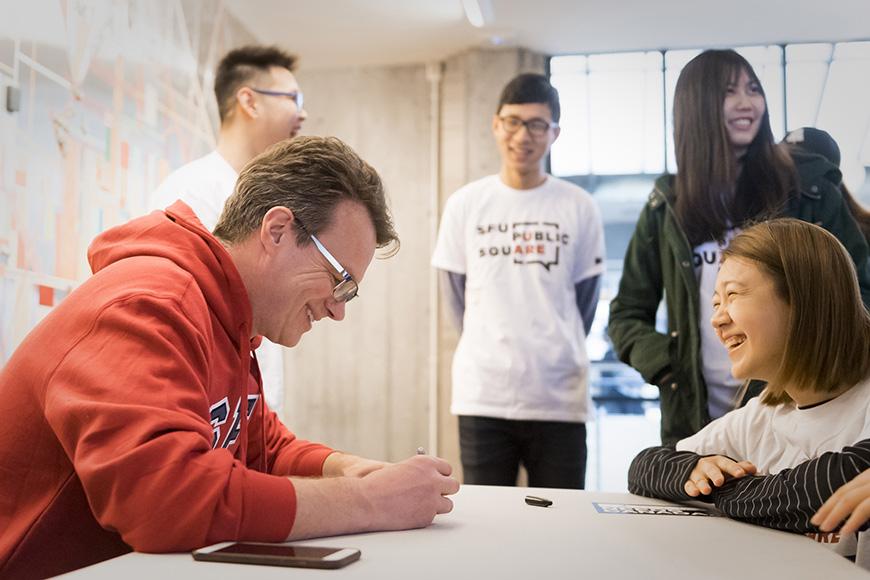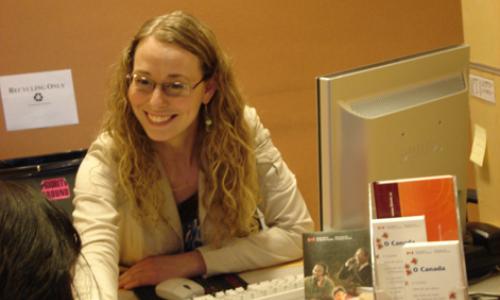
This blog post was originally published on the Student Learning Commons blog from Simon Fraser University Library on June 23, 2021.
Writing is difficult. Letting others read our writing is daunting. Regardless of the genre of our work, we share our inner thoughts when we write and open ourselves to judgement and criticism. It’s even more difficult to show someone else our work-in-progress to ask for feedback before every ‘t’ is crossed and every ‘i’ is dotted. However, no writer is an island. All professional writers have beta readers and editors who give them feedback to improve the quality and clarity of their writing. To become better writers, it is extremely helpful to get perspective on what’s still missing from our work—and also what’s great about it!
It might be scary at first to ask someone else to read your work, especially your instructor or a stranger. But when you receive helpful feedback which helps improve your writing, you're more likely to want to do it again.
Keep in mind, though, that not everyone’s the right person to read your work-in-progress. Your cynical grammar police friend might sound like a good candidate to help you with your assignment at first, but they might not understand what kind of support you need. Your family members who love everything you do might give you an ego boost, but they may not know what your professors are looking for.
When choosing someone to help you with your writing, make sure you look for someone who will be supportive but also willing to give constructive criticism. It’s important to find someone who can tell you what’s not working in your writing as well as what is. A good reader who can tell you what your strengths are can help you amplify the strong points in your writing and help you become a more confident writer. After all, there’s no point in leaving a feedback session feeling like you never want to write again, even if you did get a lot of justified criticism out of it.
A good reader will be honest about your writing, but they will tell you why it is not working and what you can do to make it better. They do not fix the problem for you (super important point—more on that later!), but they will ask the right questions to guide you on the right track.
None of us love to be told that our writing sucks. Sometimes it hurts. When we hear someone else say something isn’t clear to them, we may have this urge to clarify what we mean on the spot. If someone says they didn’t like this part, we may want to immediately justify our decision.
Don’t!
In Creative Writing workshops, writers are given one cardinal rule when it is their turn to have their writing workshopped: Zip it and listen! The writer is not allowed to speak while others discuss their work. They are not allowed to explain or defend their work in any way because the moment they do, they stop listening! They will never learn why readers thought something was unclear. They won’t be able to hear why readers thought something felt out of place. The reader is always right if they didn’t understand something or felt that sentence didn’t read well. Remember, when you submit your work to your professor or TA, you’re not sitting on their shoulder to provide commentary if they’re confused, so you need to listen and fix the issues before your assignment reaches their hands.
A reader's response to your writing will be personal. Some people don’t like to read certain things. Others may have an idea of how they would write it differently. But they’re not you. When you’re writing, you have to keep in mind your author's intentions.
If a reader tells you they didn't like a sentence, listen first, and give yourself time to digest before deciding if the suggested changes are needed. If someone tells you that you should change the word 'red' to 'crimson', it may or may not be helpful, and it's up to you whether you want to make that change. But if, for example, they tell you they are confused about your summary of The Great Gatsby as they're not sure if you meant that Daisy was a victim, you should revise what you have written.
What are you hoping to hear when you put your work-in-progress in the hands of a reader? What kind of help do you want to get? If you have specific questions about your writing, ask them! If you need a second pair of eyes on a certain paragraph or if you need to know if you have explained a concept well enough, ask it. It's helpful for the reader, too, to know what to look out for and give you specific feedback.
Some of you will say 'grammar'. Grammar is important for the clarity of your writing, but it is only a small portion of the work! When your professor reads your work, it's the originality of your ideas and the quality of your arguments that matter more.
When it comes to giving feedback, there is certainly a thing called 'over-helping'. You might run into a reader who wants to help you rewrite every single line of your work to their satisfaction. If this happens, thank them for their enthusiasm but walk away. While it's great to get feedback, your work should remain yours and not someone else's rendition. Your reader shouldn't be rewriting it for you. If you submit an assignment that has been heavily rewritten by someone else, there are academic integrity issues involved, even if it is not your intention to cheat.
A good reader will give you pointers, but they won't fix the problems for you. They will give you the resources, but they will leave you to revise your writing. Often, they'll ask you good, open-ended questions that make you think and come up with your own solutions.
There's never too early or too late to seek feedback for your assignment. If you don't know who to turn to, the Student Learning Commons is here to help! Our Writing & Learning Peers are trained readers who provide ethical tutoring and constructive feedback. Plus, they're friendly, supportive, and committed. You don't have to bring a perfect assignment. If you want to know if you're on the right track, bringing in brainstorming notes, drafts, bullet points, or just thoughts are A-okay. Just remember bring your assignment guidelines to your session, and our peers are happy to walk you through them and give you feedback on your work-in-progress so far!
Beyond the Blog
-
Visit the SFU Library for more information on writing resources.















